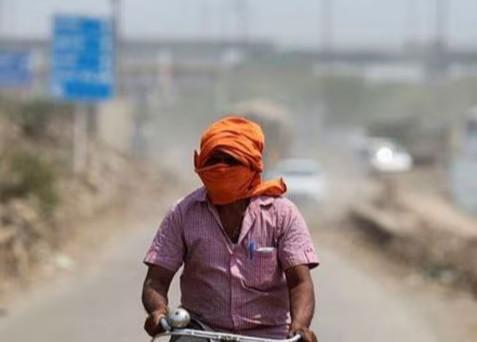
Extreme Heat Endangering Health & Productivity of Workers: Report
As the global temperature continues to rise, the consequences of extreme heat are becoming more apparent. A recent report by the World Health Organisation (WHO) and the World Meteorological Organisation (WMO) has highlighted the alarming effects of heat on worker productivity and health. According to the report, worker productivity drops by 2-3% for every degree above 20°C, making it essential for employers and policymakers to take immediate action to mitigate the risks.
Manual Workers at Greatest Risk
The report specifically highlights manual workers in agriculture, construction, and other sectors as being particularly vulnerable to the effects of extreme heat. These workers are often exposed to hot temperatures for extended periods, increasing their risk of heat-related illnesses. Heatstroke, dehydration, and kidney dysfunction are just a few of the health risks associated with working in extreme heat.
Vulnerable Populations at Risk
The report also notes that vulnerable populations, such as children and the elderly, are disproportionately affected by extreme heat. In developing countries, where access to healthcare and cooling facilities may be limited, the consequences of heat-related illnesses can be severe. Children, in particular, are at risk due to their developing bodies and lack of adaptive mechanisms to cope with heat. The elderly, who may have pre-existing medical conditions, are also more susceptible to heat-related illnesses.
Economic Consequences
The economic consequences of extreme heat are also significant. The report notes that heat-related productivity losses can result in substantial economic costs, particularly in industries such as agriculture, construction, and manufacturing. According to the report, the economic costs of heat-related productivity losses can be significant, with some estimates suggesting that the global economy could lose up to 1.2% of its GDP by 2030 due to heat-related impacts.
Recommendations for Employers and Policymakers
The report provides several recommendations for employers and policymakers to mitigate the risks associated with extreme heat. These include:
- Providing adequate breaks and cooling facilities for workers to rest and cool down.
- Implementing heat-related work schedules and rotation systems to reduce exposure to extreme heat.
- Providing personal protective equipment, such as cooling vests and hats, to help workers stay cool.
- Conducting regular health checks and providing medical attention to workers who show signs of heat-related illnesses.
- Developing heat-related emergency response plans to ensure prompt medical attention in case of a heat-related emergency.
Conclusion
The report by the WHO and WMO highlights the urgent need for employers and policymakers to take action to mitigate the risks associated with extreme heat. By implementing simple and effective measures, such as providing adequate breaks and cooling facilities, we can reduce the risk of heat-related illnesses and protect the health and productivity of workers. As the global temperature continues to rise, it is essential that we take immediate action to address this critical issue.
Source:
https://repository.inshorts.com/articles/en/PTI/45d9bd2d-ff57-417c-9e5f-831344bb34b0






